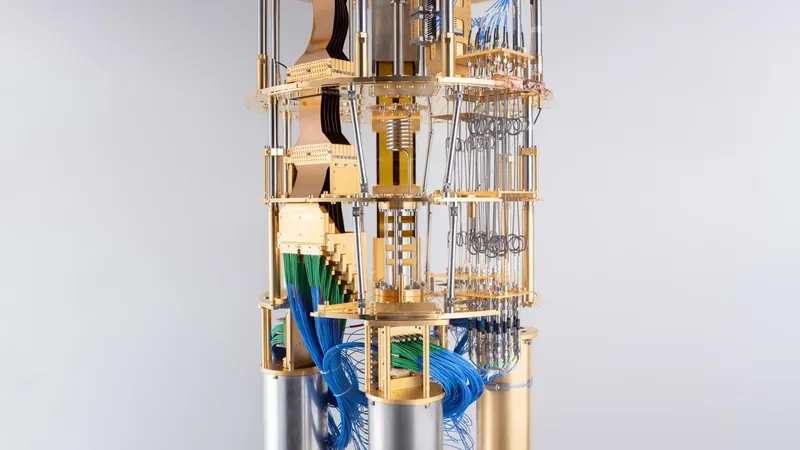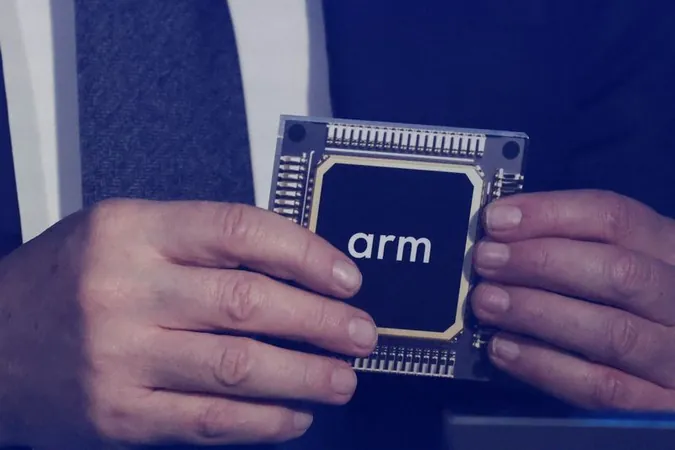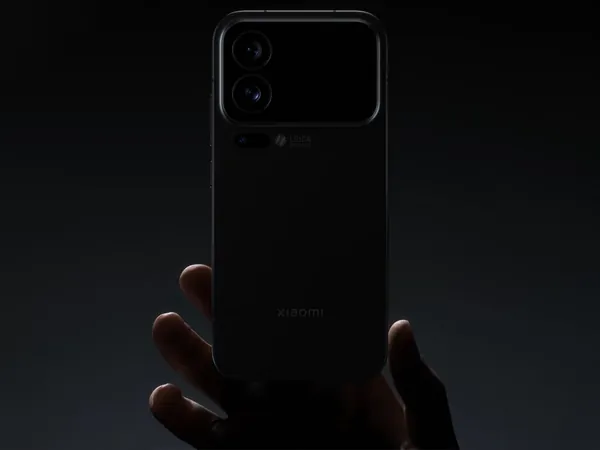
Quantum Computers Make Groundbreaking Leap: Exponential Speedup Achieved!
2025-06-30
Author: Jacob
Quantum vs. Classical: The Battle Intensifies
In the high-stakes realm of computing, a significant hurdle has always been noise—those pesky errors that plague quantum machines, making them less reliable than their classical counterparts. But a remarkable breakthrough from a team at USC has thrown open the doors to new possibilities, marking a turning point in the quest for quantum supremacy.
The Quantum Breakthrough
Daniel Lidar, a leading expert in quantum error correction and professor at the USC Viterbi School of Engineering, has teamed up with innovators from Johns Hopkins University to unleash revolutionary power from quantum processors. Their paper, published in the prestigious journal *Physical Review X*, details how they demonstrated a stunning exponential scaling advantage using IBM’s Quantum Eagle processors.
Lidar, who is also a co-founder of Quantum Elements, Inc., explained that while previous studies showcased modest gains, this exponential speedup is a game-changer. "This demonstrates we can execute entire algorithms significantly faster compared to classical computers," he said.
What Is Exponential Speedup?
Exponential speedup means that as problems grow in size—adding more variables—the performance gap between quantum and classical computing widens exponentially. Imagine doubling your advantage with every new piece of data. What’s more exciting? This new speedup is *unconditional*, not reliant on assumptions about potential classical improvements.
Tackling Simon's Problem
The researchers applied a modified algorithm designed to tackle Simon’s problem, an iconic challenge in quantum computing that sets the stage for Shor’s factoring algorithm. In Simon's game, players seek to uncover a secret number based on patterns revealed by a hidden oracle, and quantum players have the potential to succeed at this quest exponentially faster than their classical rivals!
How Did They Achieve This?
USC doctoral researcher Phattharaporn Singkanipa revealed the secret sauce behind their success: a meticulous approach to optimizing performance. They employed four key strategies:
1. **Data Limitation:** By constraining the input data to fewer secret numbers, they minimized the quantum operations needed.
2. **Transpilation:** They streamlined the logic operations to enhance efficiency.
3. **Dynamical Decoupling:** This pivotal method detached qubits from environmental noise, significantly boosting their performance.
4. **Measurement Error Mitigation:** This final touch helped correct residual errors, solidifying the integrity of their results.
A Glimpse into the Future
Lidar remains realistic, noting, "While this achievement is monumental, it doesn't yet translate into solving practical problems. Much work lies ahead before we can claim true victory in practical applications." The future challenge will be to showcase speedups that don’t rely on pre-known answers and to reduce noise in larger quantum systems.
Nevertheless, this groundbreaking research has cemented the exponential speedup promise of quantum computing, nudging us ever closer to unlocking a world of unprecedented computing power!









 Brasil (PT)
Brasil (PT)
 Canada (EN)
Canada (EN)
 Chile (ES)
Chile (ES)
 Česko (CS)
Česko (CS)
 대한민국 (KO)
대한민국 (KO)
 España (ES)
España (ES)
 France (FR)
France (FR)
 Hong Kong (EN)
Hong Kong (EN)
 Italia (IT)
Italia (IT)
 日本 (JA)
日本 (JA)
 Magyarország (HU)
Magyarország (HU)
 Norge (NO)
Norge (NO)
 Polska (PL)
Polska (PL)
 Schweiz (DE)
Schweiz (DE)
 Singapore (EN)
Singapore (EN)
 Sverige (SV)
Sverige (SV)
 Suomi (FI)
Suomi (FI)
 Türkiye (TR)
Türkiye (TR)
 الإمارات العربية المتحدة (AR)
الإمارات العربية المتحدة (AR)